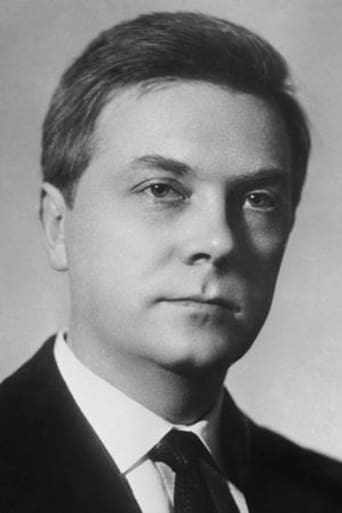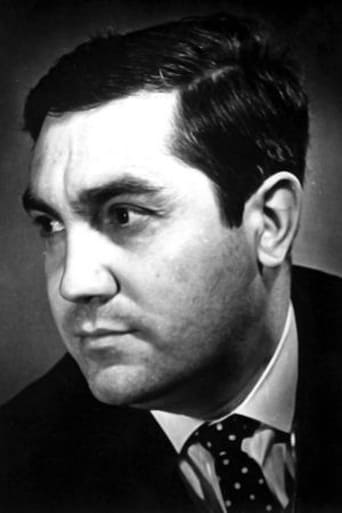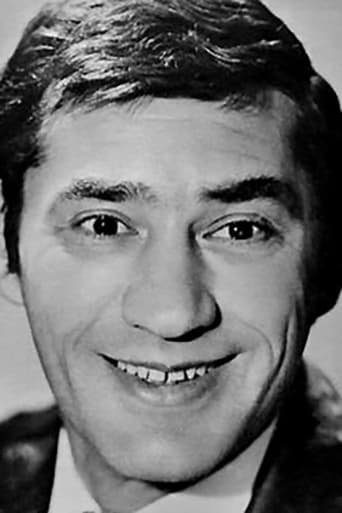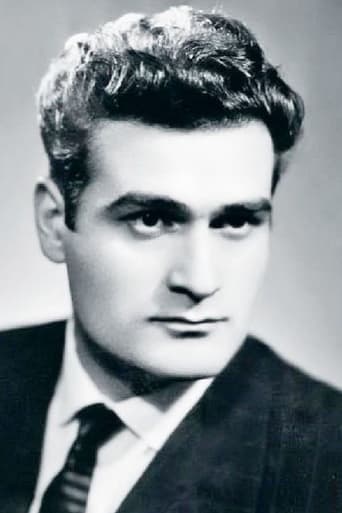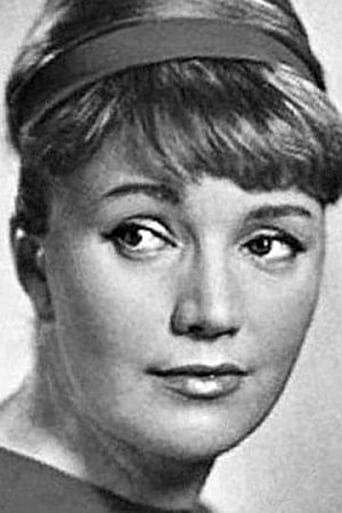Alicia
I love this movie so much
StyleSk8r
At first rather annoying in its heavy emphasis on reenactments, this movie ultimately proves fascinating, simply because the complicated, highly dramatic tale it tells still almost defies belief.
BelSports
This is a coming of age storyline that you've seen in one form or another for decades. It takes a truly unique voice to make yet another one worth watching.
Lee Eisenberg
Vladimir Motyl's "Beloe solntse pustyni" ("White Sun of the Desert" in English) looks at a Red Army soldier who has to look after a harem in Central Asia right after the 1917 revolution. One can see a stark contrast between the desolate setting and the soldier's bucolic homeland (shown through communications with his wife).I didn't find this to be a great movie, but it was interesting to see a culture that we don't often get to see. In this case it also incorporates history. And finally, a deliberately ambiguous ending. Not a great movie, but a clever one. I can see why it was a box office hit. I do recommend it if you can find a copy.
psbarlo-1
I have seen the impact that the American Western had on the Italians ("The Good, the Bad, and the Ugly") and now I have seen its influence of the Russians. This "Ostern" tackles the subject matter of civil war, bigamy, and death with a wonderful lack of pretense that is expected from a John Wayne movie; all that has changed are the ideologies. With a little more in common with "Lawrence of Arabia" than just sand the movie focuses on an unextraordinary man forced to rise to the occasion of being a hero. The lead is extremely engaging as a man who never looses his laid-back attitude even as soldiers pour oil around him and the many wives. His fidelity to his farm wife provides for the movie's highlight. He imagines his wife surrounded by the entire harem performing chores around the field. The clashing of East and... well, further East provides for many comical situations. The way the harem acts around the men in the museum is countered by the men lusting after them.
proster
The White Sun of The Desert is by far one of the best movies that USSR had to offer. Sukhov travels throughout the Russian Asia as a red army officer and is very experienced at that ,as the tag-line "East is quite a place" suggest. I tend to think of him as a Russian Indiana Jones with a big heart ,he is loyal to Ekaterina Matveevna ,his wife which is back at Russia ,who patiently awaits his return. Sukhovs thoughts are portrayed as letters ,and are narrated by the actor himself ,which really keeps the movie going along at a smooth rate.This movie is quite realistic in terms of peoples reactions and the situations which arise when the bad guys attack ,namely Abdullah ,and has some cold hearted violence to boot.As a result ,I cannot say this movie has a happy end as such ,but this is what I think would have happened in real-life. The cast of course performs very well ,and is totally believable.Both Sukhov and his quotes are always remembered and used throughout everyday Russian language. The movie is filled with dramatic moments ,some good action scenes and great humour.The soundtrack will most likely appeal more to the Russian audience or those who speak fluent Russian. I think the western audience will have no problem understanding this film ,unlike some other USSR efforts such as Kin-Dza-Dza and others where Russian background is almost required. If you have never seen a Russian film before ,this is the one to watch !
glasses
Being completely agree with all other comments, I can add a simple explanation what a cult movie it is. Every time when a manned spaceship is launched in Russia, it's team watches Beloye Solntse Pustyni right before takeoff. It's a tradition they never forgive. Even Dennis Tito had to watch it, together with other crew members, yet he probably had no translation or subtitles.
